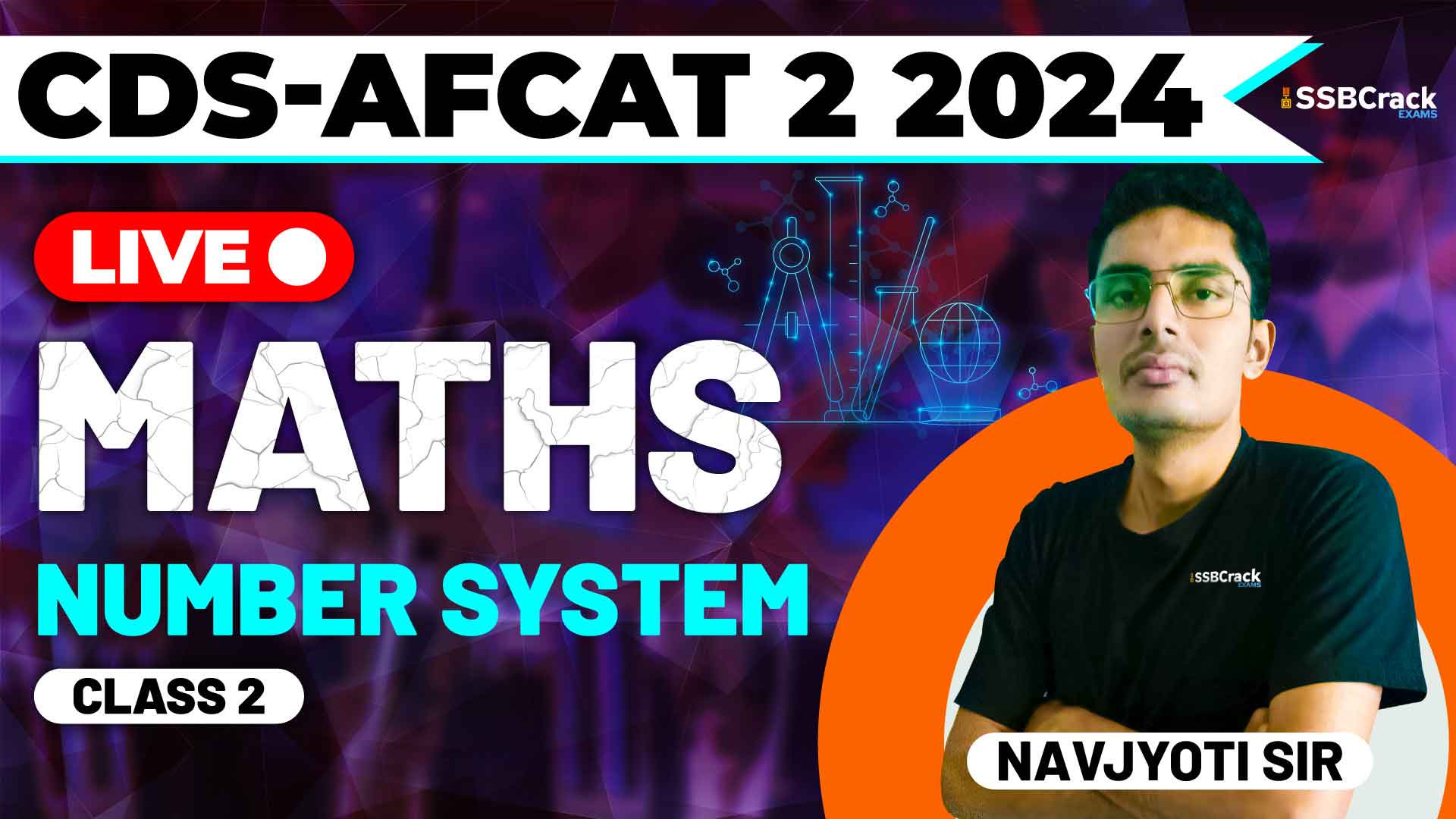The number system is a foundational topic in mathematics and a critical area for competitive exams such as the Combined Defence Services (CDS) and Air Force Common Admission Test (AFCAT). A recent class dedicated to this topic covered essential sub-topics including the decimal expansion of rational and irrational numbers, converting recurring decimal expansions to fractions, series (arithmetic, geometric, and harmonic progressions), the number of factors and prime factors of composite numbers, and the number of zeroes at the ends of factorials. This article will highlight the key concepts discussed in the class and emphasize the importance of practicing multiple-choice questions (MCQs) to excel in these exams.
Decimal Expansion of Rational and Irrational Numbers
Numbers can be broadly classified into rational and irrational numbers based on their decimal expansions.
Rational Numbers:
- Rational numbers are numbers that can be expressed as a fraction of two integers.
- Their decimal expansions are either terminating or recurring.
Irrational Numbers:
- Irrational numbers cannot be expressed as a simple fraction.
- Their decimal expansions are non-terminating and non-recurring.
Converting Recurring Decimal Expansions to Fractions
Recurring decimals have a repeating sequence of digits. Converting them to fractions involves recognizing the repeating pattern and applying a systematic approach to express them as a ratio of two integers.
Example:
- To convert 0.333… to a fraction, recognize that the repeating sequence is ‘3’.
- By setting up an equation and solving it, you can find that 0.333… equals 1/3.
Series: Arithmetic, Geometric, and Harmonic Progressions
Understanding different types of numerical series is essential for solving a variety of mathematical problems.
Arithmetic Progression (AP):
- An arithmetic progression is a sequence of numbers in which the difference between consecutive terms is constant.
- Example: 2, 4, 6, 8, …
Geometric Progression (GP):
- A geometric progression is a sequence of numbers in which each term is obtained by multiplying the previous term by a constant factor.
- Example: 3, 6, 12, 24, …
Harmonic Progression (HP):
- A harmonic progression is a sequence of numbers derived from the reciprocals of an arithmetic progression.
- Example: 1, 1/2, 1/3, 1/4, …
Number of Factors and Prime Factors of a Composite Number
Understanding the factors and prime factors of composite numbers is vital for various mathematical problems.
Number of Factors:
- The total number of factors of a number can be determined using its prime factorization.
Prime Factors:
- Prime factorization involves expressing a number as a product of its prime factors.
Number of Zeroes at the Ends of Factorials
Determining the number of trailing zeroes in the factorial of a number involves understanding the factors of 10 in the factorial.
Example:
- To find the number of trailing zeroes in 100!, count the number of times 10 is a factor in the numbers from 1 to 100.
- This is done by counting the factors of 5 and 2, with the limiting factor being the number of 5s.
Importance of Practicing MCQs
Practicing multiple-choice questions (MCQs) is essential for mastering the number system and performing well in CDS and AFCAT exams. MCQs help reinforce theoretical knowledge and develop problem-solving skills. Here are some benefits of practicing MCQs:
- Concept Reinforcement: MCQs require you to apply number system concepts, which helps reinforce your understanding.
- Variety of Problems: Exposure to different types of questions enhances your ability to tackle various problem scenarios.
- Time Management: Regular practice improves your ability to solve problems quickly and efficiently.
- Confidence Building: Familiarity with question patterns and consistent practice builds confidence.
Strategies for Solving Number System Problems
To excel in solving number system problems, adopt the following strategies:
- Memorize Key Concepts and Methods: Ensure you know the common properties and methods for solving number system problems.
- Understand the Problem: Carefully read the question to identify what is being asked and the relevant concepts.
- Practice Regularly: Regular practice with a variety of problems helps in retaining the concepts and improving problem-solving speed.
- Double-Check Calculations: Always double-check your calculations to avoid simple errors.
- Use Reliable Resources: Utilize reputable study materials and online resources that offer a variety of practice questions and detailed explanations.
Conclusion
The number system is a vital topic for the CDS and AFCAT exams, requiring a solid understanding of various concepts and the ability to apply them effectively. The recent class on the number system provided a comprehensive overview of key topics such as the decimal expansion of rational and irrational numbers, converting recurring decimal expansions to fractions, series (arithmetic, geometric, and harmonic progressions), the number of factors and prime factors of composite numbers, and the number of zeroes at the ends of factorials. Focusing on practical problem-solving through extensive discussion of important MCQs is crucial.
Stay focused, practice diligently, and approach each problem with confidence. Good luck!







